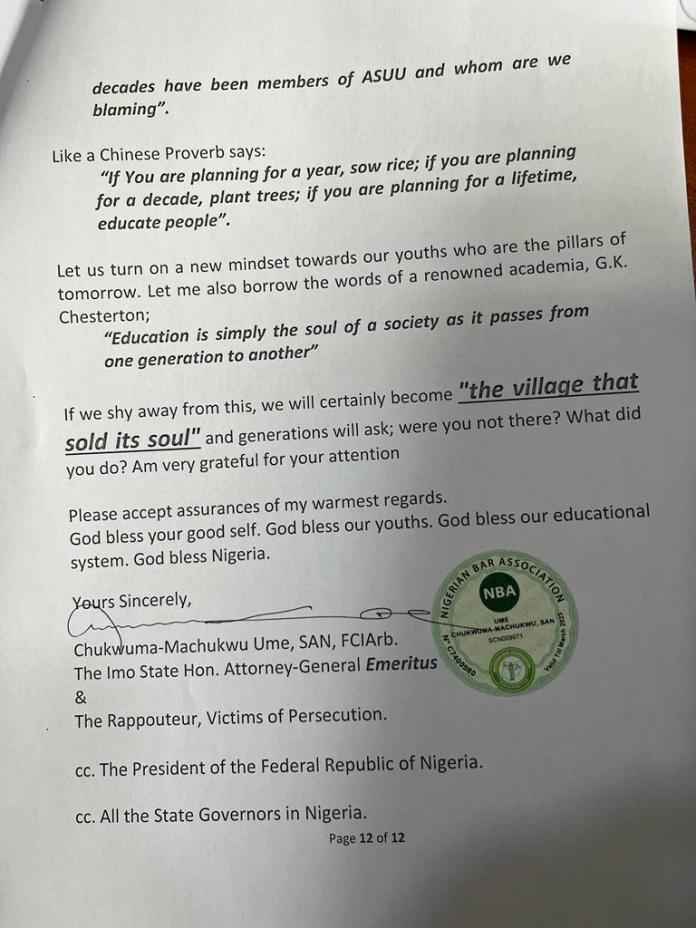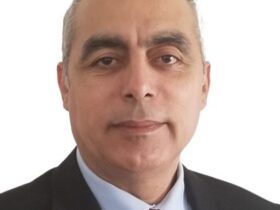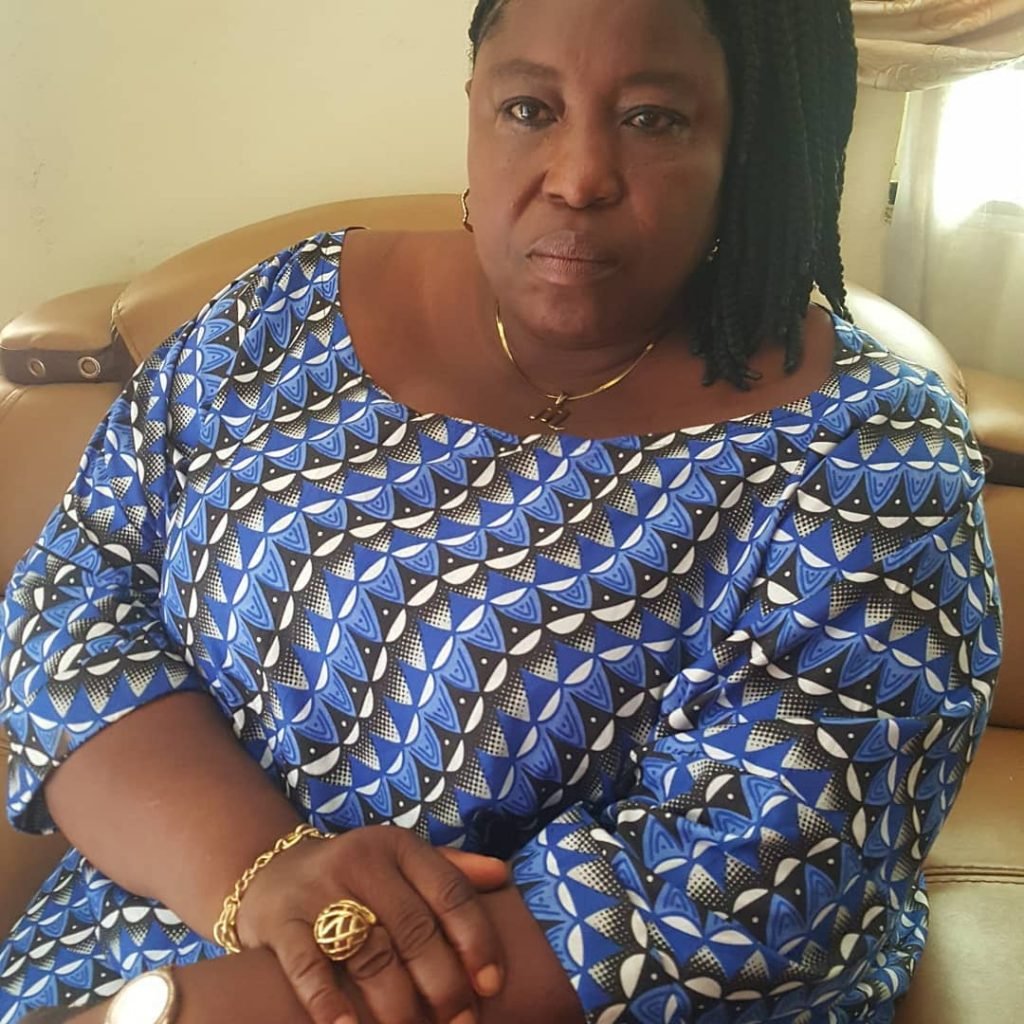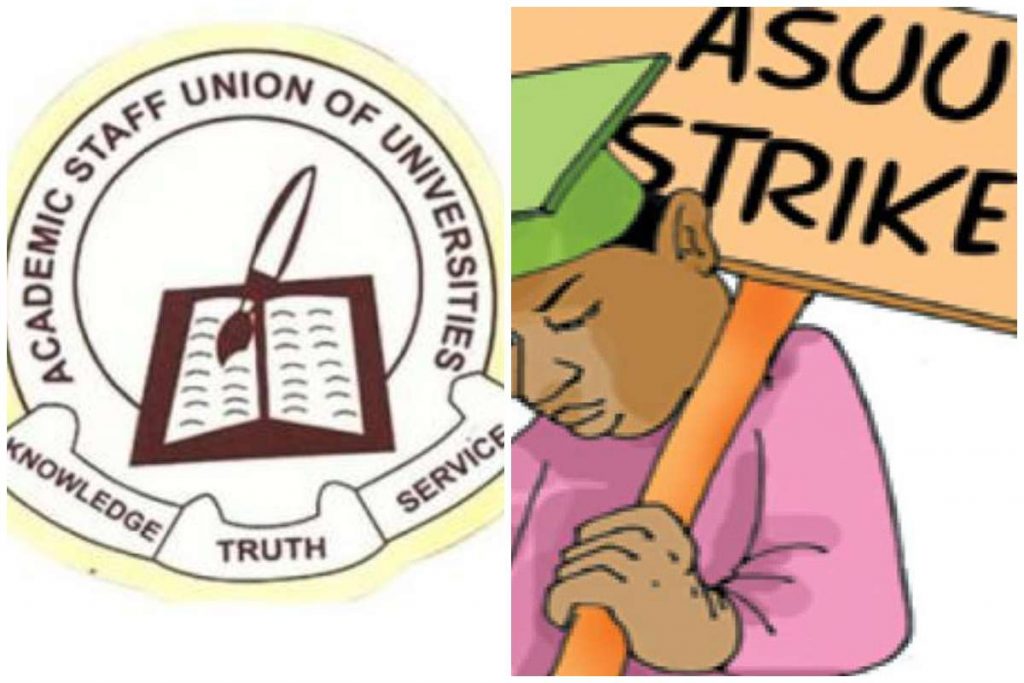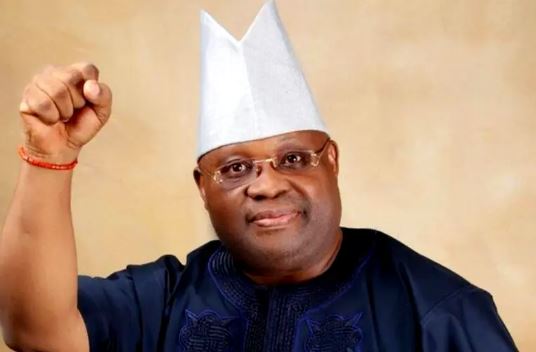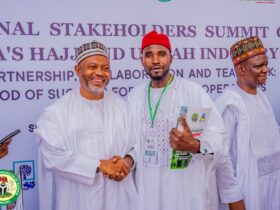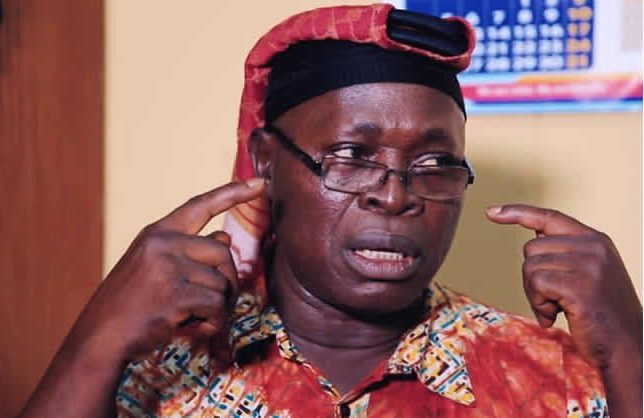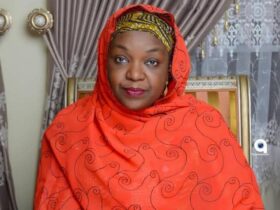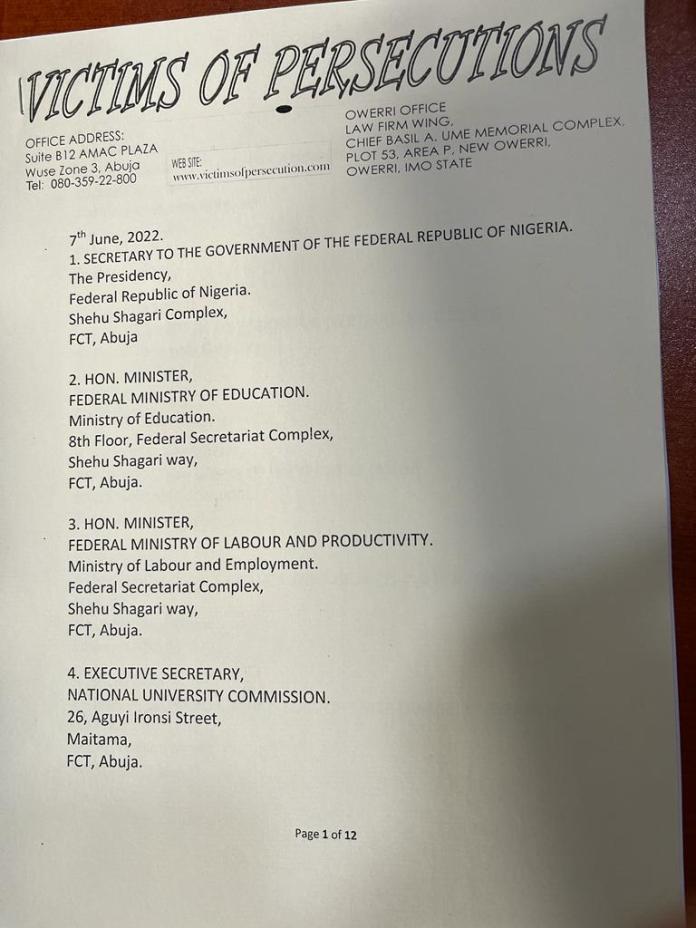
- 5 CHAIRMAN,
SENATE COMMITTEE ON EDUCATION (TERTIARY INSTITUTION)
Senate Chambers,
National Assembly Complex.
Three Arms Zone.
PMB, 141.
Garki, Abuja. - 6 CHAIRMAN,
HOUSE COMMITTEE ON EDUCATION (TERTIARY INSTITUTION)
National Assembly Complex.
Three Arms Zone.
PMB, 141.
Garki, Abuja. - 7 NATIONAL PRESIDENT,
ACADEMIC STAFF UNION OF UNIVERSITIES (ASUU)
ASUU National Secretariat.
Gwagwalada, Abuja. - 8 CHAIRMAN,
ASSOCIATION OF VICE CHANCELLORS OF NIGERIAN UNIVERSITIES (AVCNU).
No. 4 Parakou Street,
Wuse II, Abuja. - 9 SECRETARY,
COMMITTEE OF PRO CHANCELLORS OF STATE-OWNED UNIVERSITIES (COPSU).
No. 4 Parakou Street,
Wuse II, Abuja. - 10 PRESIDENT.
NATIONAL ASSOCIATION OF NIGERIAN STUDENTS (NANS)
Students Union Building,
PMB 1022.
Keffi,
Nasarawa State.
Dear Statesmen,
May I, with the utmost sense of responsibility, write this plaintive letter to your good self on the current state of education and related motley affairs in our country. There is no doubt that Nigeria, as a sovereign State and a human community, is bedeviled with myriad of problems. The particular one beleaguering our country today and on which this letter is focused, has a lot to do with your Office and invariably, your person.
Suffice it to say, today, you are one of the few persons that providence has positioned to contribute to the destiny of Nigeria and that of our children, and this can only be achieved through a conscious departure from our culture of lip service to functional education in our tertiary institutions.
The great Nelson Mandela once wrote;
“Education is the most powerful weapon which you can use to change the world”
Furthermore, Article 11(3) of African Charter on the Rights and Welfare of the Child provides that all member States:
‘Shall take all appropriate measures to encourage regular attendance at schools and the reduction of drop-out rates.’
Now the question is: are we providing meaningful education for our youths? Why is it that every academic year in Nigeria, there must be ASUU (and the likes) Strikes disrupting academic programs in tertiary institutions? Nigeria is the only country that experiences this unflattering perennial monstrosity in its educational sector. Regrettably, the Government does not seem to be uncomfortable with this generational setback and critical decay in the heartbeat of the Country’s tomorrow.
HISTORY OF ASUU INCESSANT STRIKES IN NIGERIA.
In 1988, Academic Staff Union of Universities organized a national Strike to obtain fair wages and a system of university autonomy. As a result, the Union was proscribed on 7 August, 1988 and all its property seized by the Babaginda Administration. It was only allowed to resume in 1990, but after another strike, it was again banned on 23 August 1992.
However, an agreement was reached on 3 September 1992 that met several of the Union’s demands including the right of workers to collective bargaining.
With the advent of Nigeria Fourth Republic in 1999, the Union continued to be firm in demanding for the rights of its members in the Universities. Since then till date (2022), ASUU has been made to embark on several strike actions (in fact, not less than 16 times) hence disrupting the much needed academic programs for the students. The result is apparent: most of our youths in the tertiary institutions are retarded to become half-baked minds.
Thus, the issue of repetitive strike actions by the Academic Staff of Universities Union has become a source of national embarrassment. The Union in 2022 is already taking a lot of flesh from the 2021/22 academic session of the year with the same strike action for close to three months. Is Nigeria not making a caricature of its future?
REASONS FOR THE CONTINUOUS ASUU STRIKE ACTIONS.
A) THE 2009 AGREEMENT AND THE ALLOCATION TO EDUCATION FROM 2009-2022 ON THE NATION’S ANNUAL BUDGET.
By Chapter 4, Clause 4.1 of the January 2009 Agreement between ASUU and the Federal Government of Nigeria, the Government is to set aside the total sum of N1.5 Trillion to be paid in three trenches, spread across three years {2009, 2010 and 2011}. Government has however maintained that it is impossible for it to raise that sum. This is turning out to be harder to believe, particularly due to the fact that many Nigerians are becoming more aware of the high level of unguided spending and profligacy which Government officials engage in.
Worse still is, the ease with which billions are easily stolen from public treasury by both state actors and non-state actors, has further put a crater to the Government’s claim.
B) SUBJUGATION OF THE NEIGHBOURS’ CHIDREN
Marian Wright Edelman once wrote:
“Education is for improving the lives of others and for leaving your community and world better than you found it.”
It is a truism that even the wild animals and all living organisms take extra steps to ensure a healthy survival of their offsprings. Humans are equally known to do their best for their children. The best of education is one of such. Unfortunately, our lot in Nigeria is that for our Ruling class whose children cannot get quality education in Nigeria, they take solace in overpriced foreign institutions where they train their children with foreign currencies.
With the interest of the children of the ruling class taken care of, the need to ensure that our educational system is brought to a good standard is relegated to the background. This is the irony of the Nigerian rulers’ dichotomy with the Nigerian electorate and populace.
But why this ugly scenario? The answer is simple; Loss of faith and patriotism in Nigeria. Nigeria is now a setup for scramble, targeted and clandestine consumption. The ultimate loyalty is now to self and ethnic hegemony.
This was why Victims of Persecution, a nonprofit organization, in 2009 drafted a National Interest (Education) Bill, This Bill mandates that any person wishing to assume any political office in Nigeria must ensure that their children and spouses would not be attending any foreign academic institution and would not do so as long as that person remains in office.
Essentially, the drafted Bill is to:
- Save our educational system,
- Engender patriotism for our Country
- Save political office holders from the strong suspicion of merely being in charge of the resources of a nation they do not have hope in
- Enthrone a Nation our children will be proud of.
It is our intention to re-ignite the flame of this Bill until it becomes part of our political and good governance building principle.
We have no need to praise-sing, but the Victims of Persecution commends the Hon. Minister for Labour, Dr Chris Ngige for setting a good example. His three children graduated from Nigerian Universities unlike some of the rulers whose children are airlifted abroad for their education.
To the delight of our rulers, these abnormalities ensure that the reigns of power remain in their families while their neighbours children remain ready instruments for the ongoing human carnage and bloodletting in the country.
Sir, must the electorate remain victims of the power delegated to the leaders? Should leaders be divorced from the yearnings of the electorate? On this, the Victims of Persecution shares with you, the exemplary mindset of Professor Babagana Zulum, the Governor of Borno State on why he did not accept offer by aspirants to be VP in 2023 thus:
“Ladies and gentlemen, the killings in Kala-Balgeat this weekend made me more critical and the incident seriously reminded me of the challenges that are still ahead of us in Borno State.
I came to the conclusion that while a chance to become Vice President could benefit my profile as an individual, becoming reelected as Governor of Borno State has the potential of more overall and more assurance of benefit to the good people of Borno State.
I therefore say that while I thank those who may be considering me for the position of VP, I prefer to stay back and work drastically for the people of Borno State because for me as a citizen of Borno State, working with others to hastily rebuild Borno State is the most urgent need and it is beyond any aspiration.”
C) THE GOVERNMENTS’ LAZY & INORDINATE CONSUMPTION QUESTS THUS RENDERING NIGERIA A MERE VERITABLE MARKET FOR OTHER ECONOMIES.
In 2021, the Country spent about N102 billion monthly on fuel import subsidy. In the 2022 Budget, Nigerian Federal Government earmarked about N4 trillion on refined fuel import subsidy for the year. This is by a country that is almost the 6th largest producer of crude oil in the World. Singapore has no iota of crude oil deposit but it has over Forty (40) functional petroleum refineries. WE need not say more on this.
Today, it is not far from the truth to say that virtually all segments of the Nigerian units; Government, Ministries, Parastatals, business corporations, companies of various sizes, artisans, and families are running on generators and generating plants. In fact, in the said 2022 Federal Government Budget, N104 Billion is for generators and fuel/gas in Government Ministries and Agencies.
How much does it cost to build a refinery? How much is ASUU asking for? How did Singapore do the magic of building over Forty (40) refineries?
Squandermania cannot go hand in hand with the required sacrifices for our youths in the Universities. No society and no economy can develop without expensive in-depth research system. Please help.
D) POOR FUNDING OF EDUCATION BY THE GOVERNMENTS
For years now, the percentage of funds allocated to the Educational Sector from the Nation’s Annual Budget is very poor and certainly below the standard recommended by the UNESCO (26% Yearly Budget to be allocated to Educational Sector). Herein are random samples:
YEAR ANNUAL BUDGET ALLOCATED PERCENTAGE (%)
2009 N3.049 trillion N221.19 billion 7.25
2012 N4.877 trillion N400.15 billion 8.20
2013 N4.987 trillion N426.53 billion 8.55
2018 N8.612 trillion N605.23 billion 7.03
2021 N13.08 trillion N742.5 billion 5.06
2022 N17.13 trillion N923.79 billion 5.04
Indeed, the above is not a good omen. Suffice it to say that the most direct way to stunt the growth of any society is to blur the educational system. Is Nigeria substituting education with violence? Soon there could be more guns in Nigeria than books and more kidnapping bushes than libraries.
E) DERELICTION OF DUTY OR LACK OF POLITICAL WILL TO IMPLEMENT
The National Universities Commission (NUC) is a statutory body established by the Federal Government for the purpose of promoting quality higher education in Nigeria. Some functions of this Commission are as follows:
Advising the President and Governors, through the Minister on the creation of new universities and other degree-granting institutions in Nigeria.
ii) Inquiring into and advising the Federal Government on the financial needs, both recurrent and capital, of university education in Nigeria…
iii) And to ensure that adequate provision is made for their researches.
iv) Undertaking periodic reviews of the terms and conditions of service of personnel engaged in the universities and
v) To make recommendations thereon to the Federal Government where appropriate;
vi) Laying down the minimum standards for all universities and accrediting their degrees and other academic awards after obtaining prior approval therefore through the Minister from the President.
Could it be that the National Universities Commission in its own part has been lackadaisical in carrying out its statutory duties or the Governments lack the political will to implement the recommendations made to it?
I humbly commend your good self to the wonderful words of Marcus Garvey:
“It is by education that we become prepared for our duties and responsibilities in life. If one is badly educated, he must naturally fail in the proper assumption and practice of his duties and responsibilities.”
F) THE TERTIARY EDUCATION TRUST FUND (TETFUND).
Recall that TETFund’s mandate involves the utilization of initially 2% and now 2.5% Education Tax charged on assessable profit of all companies registered in Nigeria to improve the conditions, and quality of the nation’s public tertiary institutions.
TETFund has commenced the disbursement of the direct intervention funds approved by the presidency to public Universities, Polytechnics and Colleges of Education in the country on the ratio of 2:1:1 as between Universities, Polytechnics and the Colleges of Education.
The latest intervention which runs into several billions of naira, saw each beneficiary Institution, being allocated N642,848,138.00 to each University, N396,780,086.00 to each Polytechnic and N447,758,804.00 to each College of Education in the Country for the year 2022.
Government needs to do more than this. The minds and persons that mold our future leaders should be hugely invested in. Misappropriation of state funds should not be another salient way of promoting ethnic hegemony.
G) GOVERNMENTS: THE FRUITS OF ASUU’S ELECTORAL LABOUR
